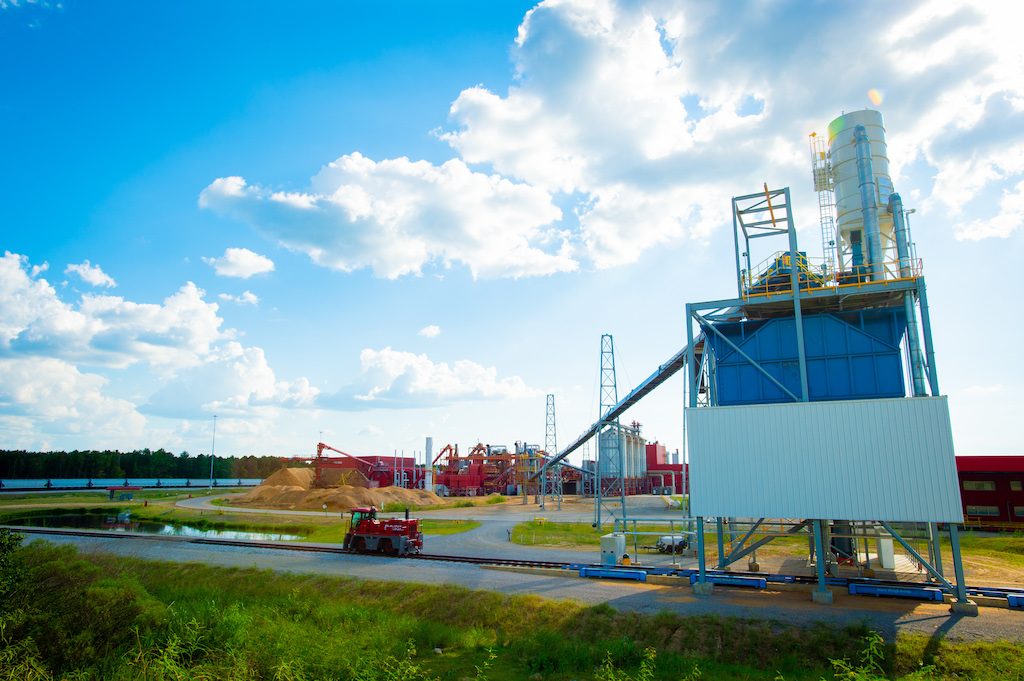
Drax strengthens biomass sustainability policy, appoints advisory board
October 18, 2019
By Drax
 New rail line and wood pellet loading bay with sawmill residues in view at Drax LaSalle BioEnergy. Photo supplied.
New rail line and wood pellet loading bay with sawmill residues in view at Drax LaSalle BioEnergy. Photo supplied. Drax has strengthened its biomass sustainability policy and set up an Independent Advisory Board (IAB) of scientists, academics and forestry experts to ensure the biomass the company uses to generate renewable electricity meets the highest standards.
In the updated policy, Drax has outlined how it will use the latest science and best practice and work with academic institutions and non-profit organizations to meet its core commitments to reduce carbon dioxide emissions, protect the natural environment, support people and communities and carry out research and outreach.
Drax also details the evidence the company will gather to increase transparency on its biomass sourcing and impacts. These include using big data and satellite images to evaluate the impact on forest cover and biodiversity in areas that supply the biomass the company uses.
This comes in addition to the company’s current commitment to certification through the Sustainable Biomass Program, a globally recognized certification system designed for biomass from wood for use in energy production.
“We’re committed to continuously raising standards in biomass sustainability, so our sourcing policies must evolve as the science develops,” said Drax Group CEO Will Gardiner. “With stronger policies in place and an independent board to challenge us every step of the way, we will be setting the standard for others to follow, which is important as sustainable biomass plays an increasing role in addressing climate change.”
The UK government’s former Chief Scientific Adviser Sir John Beddington will chair the six-member IAB, which will provide independent advice to Drax in all areas of its biomass sourcing including procurement practises and feedstock options.
“The IPCC and Committee on Climate Change both recognize that sustainably sourced biomass will play an important role in meeting climate change targets. I decided to chair the IAB because it’s vital that biomass is sourced sustainably and takes the latest scientific thinking into account,” said IAB Chair Sir John Beddington. “As the science evolves, we will make recommendations to ensure that the biomass used at Drax makes a positive contribution to our climate and the environment.”
Drax’s biomass sustainability policy draws on recommendations made by Forest Research, the research agency of the Forestry Commission, in a report commissioned by the European Climate Foundation, a philanthropic foundation.
The Forest Research report recommends 15 key criteria to deliver sustainable biomass that has the best outcome for the environment. These include favouring biomass that is associated with activities to conserve and enhance forest growth and productivity and a commitment not to take from sources that lead to deforestation.
Following the conversion of two thirds of the North Yorkshire power station to use biomass instead of coal, last year Drax reduced its carbon emissions by over 80 per cent since 2012, making it the UK’s biggest renewable power generator and Europe’s largest decarbonization project.
The company has plans to go further in its decarbonization with the development of bioenergy with carbon capture and storage technologies which could enable Drax to become the world’s first negative emissions power station in the 2030s.
Print this page